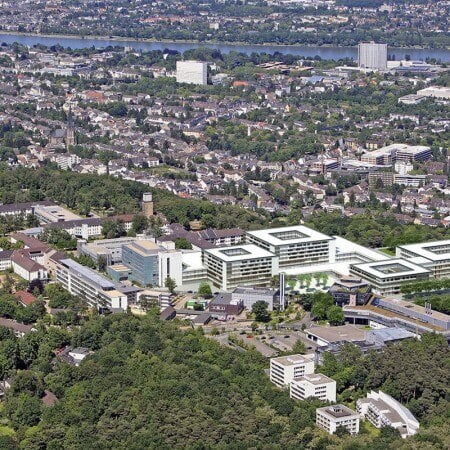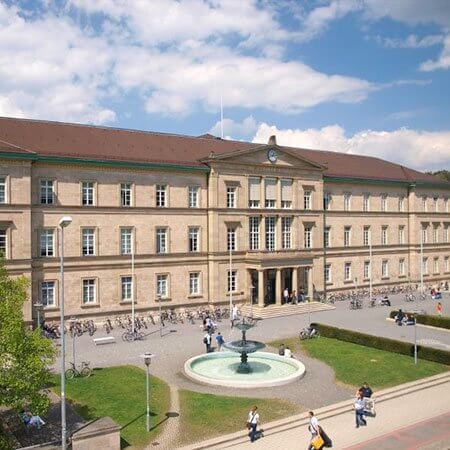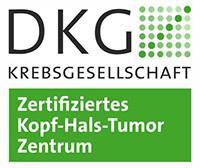Salivary gland cancer is a life-threatening condition of the organs that produce saliva. This fluid lubricates food, triggers digestion, and prevents mouth and throat infections. Such neoplasms are malignant because their cells multiply uncontrollably, grow into surrounding tissues, and affect organs far away from the locus of the disease.
Content
- What are salivary glands, and how are they affected by cancer?
- Salivary gland cancer: challenges in treatment
- Causes of salivary gland cancer occurrence
- The clinical picture of salivary gland cancer
- Surgery for salivary gland cancer
- Radiotherapy for salivary gland cancer
- Chemotherapy for salivary gland cancer
- Prophylaxis of salivary gland cancer
- The cost of treatment in European hospitals
- How to start salivary gland cancer treatment in Europe?
What are salivary glands, and how are they affected by cancer?
Salivary glands produce saliva, a fluid that not only moistens our mucous membranes but also contains enzymes and proteins that trigger digestion. They also have special substances that help prevent infections in the mouth and throat.
There are three large glands on each side of our face. The largest are parotid glands in front of the ears. They give origin to up to 7 out of 10 tumors, and most are benign, not cancerous; they do not grow into nearby tissues and do not give metastases.
Submandibular glands located under the lower jaw. They secrete saliva under the tongue. About 1-2 of 10 neoplasms occur in them, half are malignant.
The smallest IS the sublingual salivary glands located on both sides of the tongue. It is pretty rare for cancer to be detected in this location.
In addition to the above, several hundred small salivary glands can be seen only under a microscope. They are located under the lips and tongue mucous membrane, in the palate, inside the cheeks, nose, and pharynx. Tumors in them are not the most common, but the vast majority are cancerous.
Salivary gland cancer: challenges in treatment
Each type of tumor has its clinical course, with its prognosis. The relationship between the morphology of the tumor and its stage can accurately determine the positive or negative outcome of further treatment. Time plays a key role here.
For benign tumors, surgery is often used. The return of the disease after surgical treatment is about 2% of all cases.
With salivary gland cancer, the 5-year prognosis for life is about 50%. Eighty percent of lethal outcomes happen during 15 years of life after a diagnosis of the disease and therapy. In the case of transformation to severe forms, metastases occur in 30% of cases.
In cases of malignant neoplasms, uncertainty is pronounced. The average 5-year survival rate is 30%. It is worth noting that in cases of successful surgical intervention for salivary gland cancer, the prognosis for life after surgery becomes more positive, and patients survive more than ten years. The attending physician determines the need for such a procedure, provided there are metastases.
The complexity of the treatment situation for salivary gland cancer lies in the fact that such types of tumors have not been fully explored, and the correlation with genetic heredity has not been fully established. Factors such as radiation exposure and experienced lymph node diseases are possible causes, but they are not of prime importance. Research has shown that people whose jobs involve regular inhalation of dust and chemicals are more likely to develop salivary gland cancer, indicating a potential occupational hazard.
As with any cancer, the timing of diagnosis is essential. The earliest forms are difficult to detect, but they are well treated.
Causes of salivary gland cancer occurrence
The apparent etiological factors that provoke salivary gland cancer are not well established. Scientists think that the leading causes are negative influences from the environment. Also, risk factors include inflammation of the salivary glands, smoking, and consumption of unhealthy foods.
Among the adverse effects of the environment is radiation exposure: atmospheric emissions, radiation therapy, diagnostic procedures, and living in an area with a high background radiation level. Some experts have concluded that the disease may begin because of excessive exposure to the sun.
Sometimes the development of cancer is associated with a person's work activities. Doctors say that salivary gland cancer diagnosis is more often given to workers in the automotive industry and the field of mineral resources. Also, workers in asbestos mines and employees of the X-ray service are in the risk zone. Contacts with cement dust, asbestos, chromium, lead, nickel, and other carcinogens may influence the development of salivary gland cancer.
Scientists say that getting cancer is more likely for people infected with certain viruses. For example, a direct connection has been found between the prevalence of epithelial neoplasia and the frequency of infection with the Epstein-Barr virus. There is evidence indicating a high chance of developing salivary gland cancer in people who have previously had epidemic mumps.
The impact of smoking is still unclear. Some types of salivary gland cancer are often diagnosed in people who smoke. However, most physicians do not currently classify smoking as a risk factor for salivary gland cancer.
There is no evidence of heredity influencing the development of salivary gland cancer.
The clinical picture of salivary gland cancer
Unexplained drying of the oral mucosa is considered an alarming sign that may indicate the presence of a malignant salivary gland tumor.
The severity of symptoms depends on the stage and type of the tumor. Often, it develops slowly and becomes noticeable only after reaching a large size. All types of neoplasms are latent at the first stages of development. Sometimes patients complain of active saliva production. Primarily, such signs are never associated with cancer, and people simply do not see the doctor.
As the neoplasm progresses, the patient complains of a feeling of swelling on the cheek. It can be palpated on the outside of the cheek and found with the tongue. These signs are accompanied by numbness around the area where swelling develops. The pain irradiates to the ear or down to the neck.
When palpating the lump, note the following symptoms:
- The neoplasm has a round or oblong shape
- When palpating, the patient feels a slight soreness
- The walls of the tumor are flat
If the tumor affects the facial nerve, the patient has a severe limitation of facial muscles mobility (on the side of the lesion), leading to complete paralysis in the future. Such manifestations of salivary gland cancer sometimes lead to the misdiagnosis with inflammation of facial nerves. Physicians prescribe an appropriate course of treatment, which includes physical therapy (in particular thermal procedures). During the diagnosis and treatment of salivary gland cancer, such mistakes worsen the condition because the tumor begins to grow and spread metastases faster.
As the malignant disease progresses, the pain intensifies WITH additional complaints:
- Regular headaches
- Discomfort in the ear on the side of the pathological process
- The Clinical picture of purulent otitis media
- Decreased hearing or complete loss of hearing
- Spasms of the masticatory muscles
These signs refer to the general symptomatology, typical for various neoplasms. Depending on the type of tumor in the salivary gland, the symptoms may be unique.
Surgery for salivary gland cancer
Salivary gland cancer treatment usually includes surgery, with or without conventional therapy. The treatment scheme should be elaborated individually by surgeons, cancer specialists (oncologists) and doctors who specialize in treating cancer with radiation (radiation oncologists).
If the tumor is small and 'low grade, only surgery can aid in getting rid of it. This happens if cancer has not spread outside the salivary gland
Removing the tumor from the glands can be complicated because several essential nerves are found near these glands. For example, a part of the nerve that controls facial movement (the 7th cranial nerve), found inside the parotid gland. Thus, complications of tumor removal from the parotid gland can include nerve damage. Nerves near the submandibular and sublingual glands control tongue movement, control, sensation, and taste. Some of these nerves may be cut if cancer spreads outside the salivary gland.
Generally, surgery to treat salivary gland cancer may include:
- Removal of part of the salivary gland. If the tumor is small and localized at an easily accessible site, the surgeon may excise it and a small area of healthy tissue around it.
- Removal of the entire salivary gland. For larger tumors, the doctor may recommend complete removal of the salivary gland. If cancer has spread to surrounding structures (facial nerves, salivary gland ducts, skull bones), they may also be removed.
- Removal of the cervical lymph nodes. If there is evidence that cancer has spread to the lymph nodes in the neck region, they must be removed.
- Reconstructive surgery. If bones, skin, or nerve trunks are removed during surgery, they may be replaced during reconstructive surgery. During these surgeries, the plastic surgeon repairs the tissue so that patients can chew, swallow, speak, and breathe again. Skin and other tissues transplanted from other body regions may be needed to restore the mouth and lips.
When possible, surgeons try to preserve facial nerves. In some cases, damaged nerves may be replaced with other nerves from other body regions.
Reconstructive surgery is necessary if a large volume of bone or soft tissue has been removed during surgery. The goal of reconstructive surgery is to improve the appearance and help adjust to difficulties patients may have with chewing, swallowing, speaking, or breathing.
Patients may need physical therapy to overcome complications from surgery, such as difficulty speaking, chewing, or swallowing. A nutritionist can help patients choose foods that are right for them if chewing and swallowing are complicated. Patients will also receive recommendations on how to restore swallowing function.
Radiotherapy for salivary gland cancer
Salivary gland cancer is usually irradiated with a device that is placed outside the body (external radiotherapy). The patient is placed on a table and a machine moves around him emitting radiation. Newer types of radiation therapy for salivary gland tumors may be more effective in treating certain types of salivary gland tumors. More research is needed to understand the risks and benefits of this treatment.
If the tumor is large enough and its localization makes it challenging to remove it, if cancer has spread outside the salivary glands, or if the doctor is concerned that other areas may be affected, then radiation after surgery may be a part of the treatment. If the tumor cannot be removed by surgery, only radiation may be used to get rid of salivary gland cancer.
Side effects of head and neck irradiation may include changes in skin color (like tanning), dry mouth or thick saliva, redness, irritation and wounds in the mouth, sore throat, hoarseness, swallowing problems, jaw stiffness, loss or changes in taste, ear pain, bone pain, nausea, and fatigue.
Chemotherapy for salivary gland cancer
Chemotherapy is not used as a standard treatment for salivary gland cancer, although scientists are investigating its effectiveness in treating the disease.
Chemotherapy involves the destruction of abnormal cells by particular drugs that are injected into blood vessels or taken like regular pills. They enter the blood and spread throughout the body, thus working against all cancer cells at once. Often, such drugs are prescribed for patients with metastases.
Chemotherapy can shrink the tumor, but cannot cure this type of cancer on its own. Some substances increase the effectiveness of radiation therapy and facilitate the destruction of altered cells by radiation. Such therapy is prescribed in cycles, which are necessarily followed by a rest period to allow the body to recover. As a rule, such cycles last from 3 to 4 weeks.
Prophylaxis of salivary gland cancer
Take the following precautions to prevent salivary gland cancer development or its progression:
- Avoid tobacco use
- Avoid or limit radiation exposure, if possible
- Check your mouth and jaw periodically for lumps or tumors
- Ask your doctor or dentist to check your tonsils during regular appointments
If you find a lump, do not ignore it, because it is painless and does not show up when you touch it. See your doctor or dentist. It is often difficult to tell if a tumor is benign or malignant without examinations, so it’s better not to hesitate regarding contacting a doctor.
The cost of treatment in European hospitals
Unfortunately, it's difficult to predict the exact cost of treatment in Europe for several reasons:
- It's necessary to have complete information about the patient's diagnosis and state of health
- Determining the stage of the disease and its severity is key.
- It's vital to know the treatment program
For obvious reasons, this is not realistic to know in advance. However, it is possible to get programs of leading clinics for preliminary consideration. The cost of surgical treatment for salivary gland cancer ranges between 7,100 EUR and 11,400 EUR.
You can get a calculation of the cost of treatment in Europe for your clinical case of salivary gland cancer once you leave a request on the Booking health website.
How to start salivary gland cancer treatment in Europe?
Booking Health was established by a group of like-minded people, who professionally engaged in treatment abroad and treatment particularly in European hospitals. The company has vast experience in the field of medical tourism.
Booking health will help you choose a clinic and doctor to organize a trip for consultation, examination, surgery, and overall treatment in European hospitals. Booking health will provide you with all coordination services and help to resolve organizational issues during treatment in Europe. You will be accompanied by an interpreter, and your medical coordinator will always be in touch with you. It is important to note that payment for treatment is always made directly to the clinic cashier according to the price policy of the European hospitals.
To start salivary gland cancer treatment in Europe, fill in the request form on the Booking Health website and wait for a medical advisor to contact you.
Authors:
The article was edited by medical experts, board certified doctors Dr. Nadezhda Ivanisova and Dr. Vadim Zhiliuk. For the treatment of the conditions referred to in the article, you must consult a doctor; the information in the article is not intended for self-medication!
Sources:
European Society for Medical Oncology
Cancer Support Community
MedicineNet




















